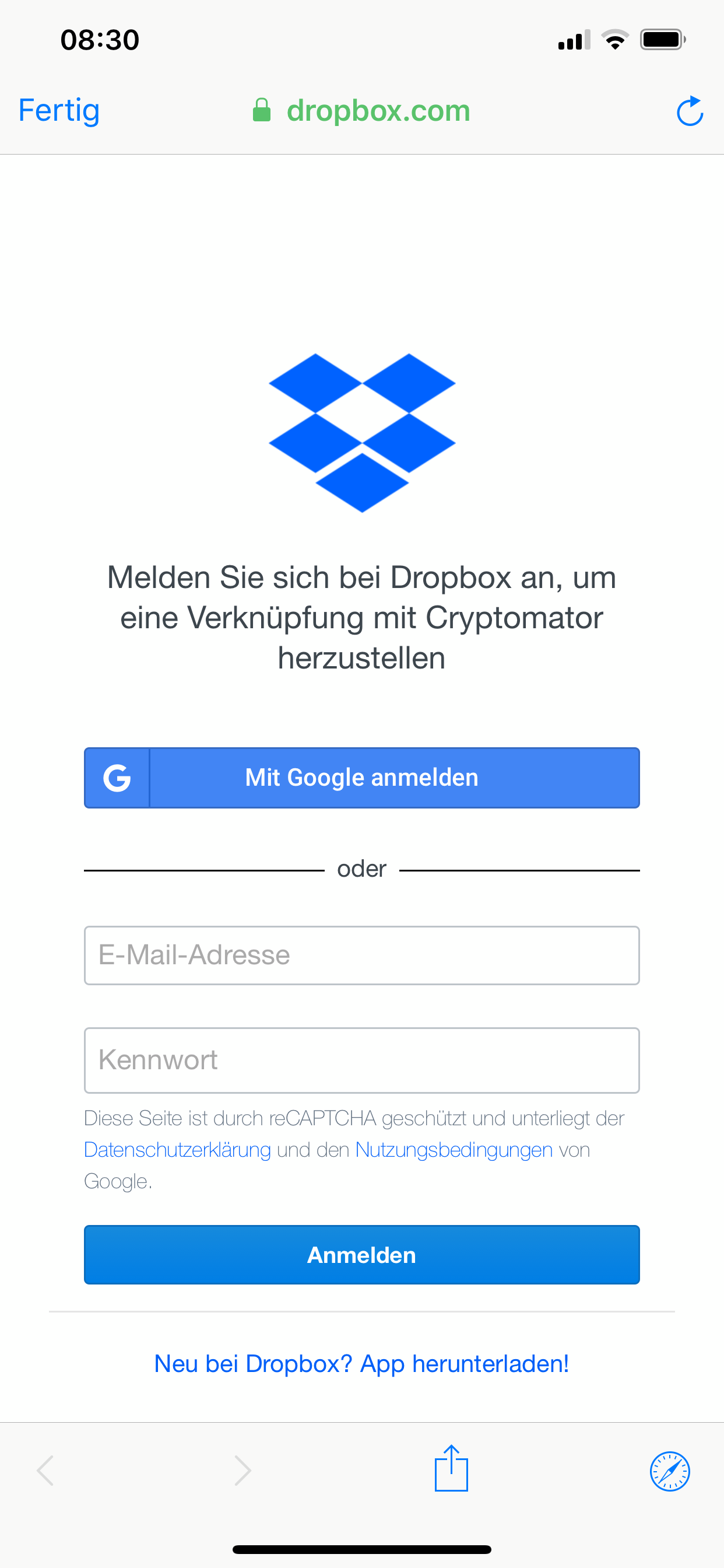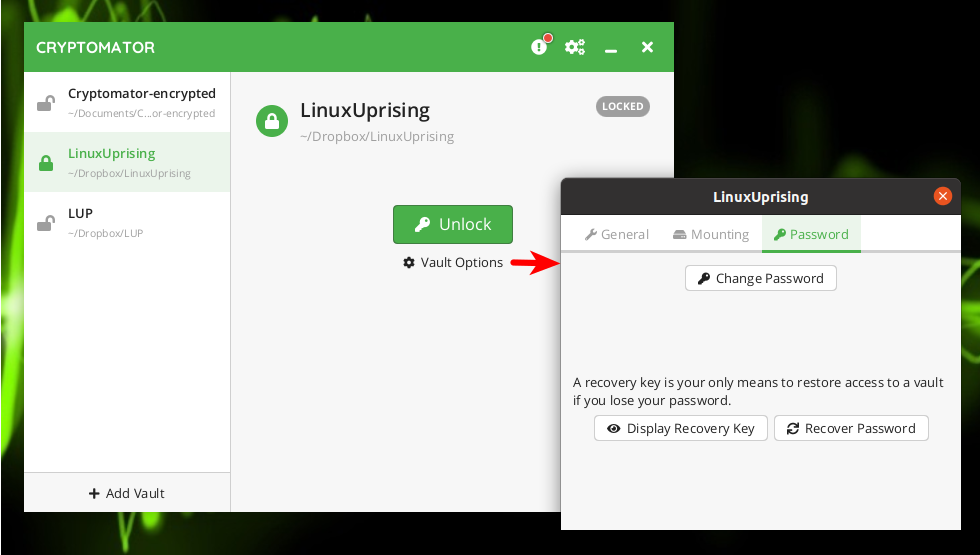
- Cryptomator vault software#
- Cryptomator vault code#
- Cryptomator vault password#
- Cryptomator vault Pc#
- Cryptomator vault free#
Just work with your files as you're used to.Ĭryptomator encrypts file contents and names using AES. This means that you don't have to learn new workflows. Complexity would kill security.Ĭryptomator is a so-called transparent encryption utility. This makes it a lightweight application, which we believe is a huge benefit for reliability. Cryptomator encrypts files and doesn't care where you store them. You don't even need to specify what cloud you use.
Cryptomator vault password#
Just choose a password and you're ready to go. With Cryptomator you don't have to deal with accounts, key management, cloud access grants or cipher configurations. We understand simplicity as a key aspect of security.
Cryptomator vault free#
Cryptomator is free and open source software, so you can rest assured there are no backdoors.

Protect your documents from unauthorized access. And as a rule, your particularly sensitive documents should be getting their own layer of encryption anyway, just to be safe.Ĭryptomator provides transparent, client-side encryption for your cloud. While Cryptomator feels a little bare-bones, it's hard to complain it's one of the few free and open tools to increase the privacy and security of your cloud storage, bringing services like Google Drive and iCloud more up-to-par with robust offerings like SpiderOak One and pCloud Crypto. But for what Cryptomator is and what it costs, these are wishlist items rather than critical missing elements. We'd prefer a system where the folder would relock after a certain period of inactivity, or if the user logs out, suspends, or shuts down their PC. You'll also need to remember to relock your Cryptomator folders when your session ends, because they'll stay open by default otherwise. It would probably be more intuitive if the desktop app integrated with Windows' context menus, where you could right-click on the desktop or within the File Explorer and create a folder from there. Instead, once you've navigated through Save As to find the location where you want to create the folder, you go to the File Name field (even though you're creating a folder and not a file), name your folder, and click the Save button. In this dialog, there is no "New Folder" button. However, this opens the operating system's Save As dialog, which starts at your PC's root folder. Setting it up may be confusing: To create a Cryptomator folder in Windows, you open the desktop app, click on the "+" button in the bottom left, and click on Create New Vault. Suffice to say, if you're reading this review, you're probably just a few clicks or taps away from being able to run Cryptomator on your device. It's just about everywhere: In addition to Windows, you can get it for MacOS, Android, iOS, and Linux. The flip side is that the storage provider cannot help you if you lose the password that decrypts your file. Because there are two layers of encryption on this file, the one created by you should remain intact even if the one applied by your storage provider gets compromised. When you click-and-drag a file into this inner folder, Cryptomator will automatically apply your encryption before it gets uploaded to the cloud server, where Google or Dropbox then apply the encryption key that they share with the user.
Cryptomator vault Pc#
It's seamless: To get Cryptomator to sync up with your Google Drive or Dropbox, you just need to create a Cryptomator watch folder inside of the folders on your PC that were created by those cloud storage services.
Cryptomator vault software#
When you're dealing with the security of potentially sensitive data, it's important to be able to trust the software that's interacting with it, and this company's approach should satisfy most people on that score. Its creator Skymatic is a reputable company based in Germany, and the employees all have real names and faces on the company website.
Cryptomator vault code#
Because the source code is publicly available, technical users can examine it themselves on GitHub for potential security or privacy issues. There are no ads nor collection of your personal info. It's completely free and open: Cryptomator is an open-source product whose developer relies on donations for income. Cryptomator is in the second category, and best of all, it's free.

You have two alternatives: Go with a more secure service altogether, like SpiderOak or pCloud, or get an app that can add an additional layer of encryption before you move your files online. The major cloud storage services like Google Drive and iCloud are easy to use and economical, but they all keep a copy of your account's encryption keys, which isn't good for your digital privacy.


 0 kommentar(er)
0 kommentar(er)
